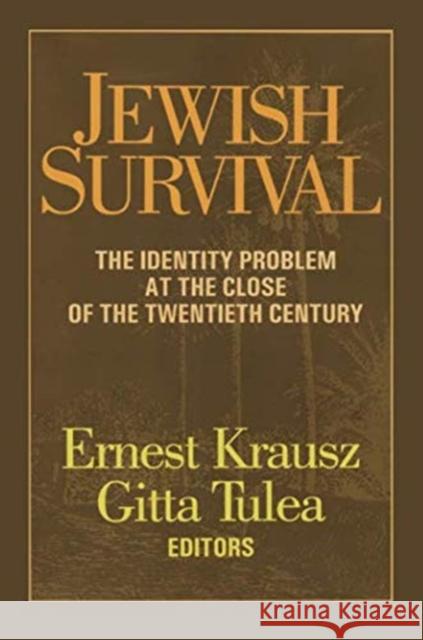Jewish Survival: The Identity Problem at the Close of the 20th Century » książka
Jewish Survival: The Identity Problem at the Close of the 20th Century
ISBN-13: 9781138511262 / Angielski / Miękka / 2018 / 288 str.
Jewish Survival: The Identity Problem at the Close of the 20th Century
ISBN-13: 9781138511262 / Angielski / Miękka / 2018 / 288 str.
(netto: 227,58 VAT: 5%)
Najniższa cena z 30 dni: 216,55
ok. 16-18 dni roboczych.
Darmowa dostawa!
These essays address Jewish identity, Jewish survival, and Jewish continuity. The authors account for and analyze trends in Jewish identification and the reciprocal effects of the relationship between the Diaspora and Israel at the end of the twentieth century.Jewish identification in contemporary society is a complex phenomenon. Since the emancipation of Jews in Europe and the major historic events of the Holocaust and the establishment of the State of Israel, there have been substantial changes in the collective Jewish identity. As a result, Jewish identity and the Jewish process of identification had to confront the new realities of an open society, its economic globalization, and the impacts of cultural pluralism. The trends in Jewish identification are toward fewer and weaker points of attachment: fewer Jews who hold religious beliefs with such beliefs held less strongly; less religious ritual observance; attachment to Zionism and Israel becoming diluted; and ethnic communal bonds weakening. Jews are also more involved in the wider society in the Diaspora due to fewer barriers and less overt anti-Semitism. This opens up possibilities for cultural integration and assimilation. In Israel, too, there are signs of greater interest in the modern world culture. The major questions addressed by this volume is whether Jewish civilization will continue to provide the basic social framework and values that will lead Jews into the twenty-first century and ensure their survival as a specific social entity.The book contains special contributions by Professor Julius Gould and Professor Irving Louis Horowitz and chapters on "Sociological Analysis of Jewish Identity"; "Jewish Community Boundaries"; and "Factual Accounts from the Diaspora and Israel."











